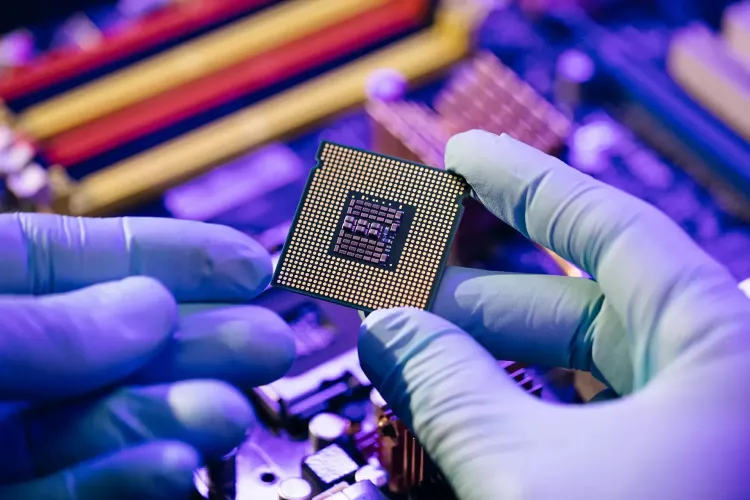New Chip Export Control Measures Introduced by the US Against China

Washington, Dec 2 (NationPress) The United States has rolled out a new semiconductor export control package aimed at China, which includes restrictions on high-end chips for artificial intelligence (AI) that are likely to impact the South Korean industry.
The Commerce Department's Bureau of Industry and Security (BIS) disclosed the package in the Federal Register, which consists of curbs on high bandwidth memory (HBM) chips. Two major South Korean companies -- Samsung Electronics and SK hynix -- along with Micron Technology, dominate the global HBM market.
This package is released as President Joe Biden prepares to transition out of office on January 20, with President-elect Donald Trump anticipated to pursue a stringent policy against China. This aligns with Washington's efforts to restrict China's access to critical technologies citing national security concerns, as reported by Yonhap news agency.
According to Secretary of Commerce Gina Raimondo, 'This action is the culmination of the Biden-Harris Administration's targeted strategy, working with our allies and partners, to hinder the People's Republic of China's (PRC) capacity to develop advanced technologies that threaten our national security.'
In this latest package, the BIS has enacted Foreign Direct Product Rules, meaning a product produced overseas is also subject to restrictions if it utilizes U.S. technology, software, or tools.
The HBM restrictions, which are set to take effect on December 31, pertain to chips boasting a memory bandwidth density exceeding 2 gigabytes per second per square millimeter, as stated by the BIS.
The restrictions are likely to have an impact on Samsung, as it exports some of its HBM products to China. However, SK hynix is expected to be less affected, given that the company exports all its HBM products to the United States, according to market analysts.
The BIS emphasized the critical nature of HBM limitations for AI applications, highlighting their potential to facilitate advanced military and intelligence operations, lower entry barriers for non-experts developing weapons of mass destruction, support offensive cyber operations, and aid in the use of mass surveillance for human rights violations.
The Commerce Department also introduced new controls on 24 types of semiconductor manufacturing equipment (SME) and three categories of software tools dedicated to the development or production of semiconductors, as well as adding 140 entities associated with China's military modernization to its 'Entity List.'
New Foreign Direct Product controls were established for specific SME items that are produced in foreign nations but utilize U.S. technology, software, or tools – a move that could influence Korean-made chipmaking equipment exports.
Among the 140 entities added to the export control list, two are based in Korea: ACM Research Korea Co. and Empyrean Korea.
In response to the new export restrictions, China's foreign ministry pledged to implement 'resolute measures.'
'We have consistently articulated our stance on this matter. China firmly opposes the U.S. for overextending the notion of national security, abusing export controls, and maliciously obstructing and suppressing China,' stated Lin Jian, the ministry's spokesperson, during a press briefing.
'Such actions grossly violate market economy laws and the principles of fair competition, disrupt the international economic and trade order, destabilize global industrial and supply chains, and ultimately harm the interests of all nations,' he added.










